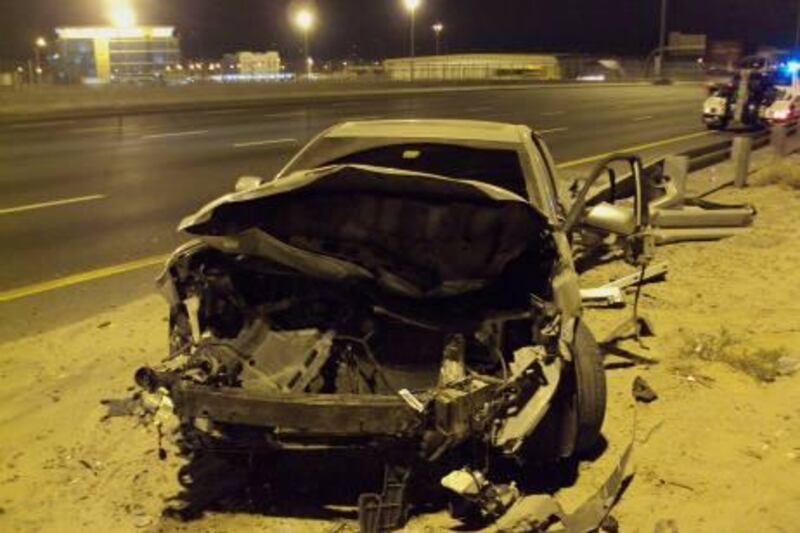ABU DHABI // New laws on speeding, seat belts and school buses are needed to save lives on the roads – particularly children, the FNC says.
A new report prepared by the council’s interior and defence committee details a list of issues it says the Ministry of Interior needs to address.
The 24-page report found that while the number of road accidents was down, problems remained with child safety, awareness messages that lacked clarity and regulations and speed limits that differed between emirates.
The Ministry of Interior says 63 per cent of child deaths nationwide are caused by road accidents and 90 per cent of Emirati families do not use a car seat or seat belt for their children.
The FNC report echoes public concern about child safety. “There should be more laws,” said Hamad Karam, an Emirati law student from Ras Al Khaimah.
“Children in my family who go to government schools do not have a bus supervisor, which increases the number of accidents. Only private school buses have.”
The FNC report calls for harsher punishment for school bus drivers who run over children, and for drivers who break traffic laws with a child or disabled person as a passenger.
Off-road quad bikes were also singled out for regulation. Children under 18 are allowed to drive the vehicles in the desert, but not on public roads. They are also not allowed to hire the bikes. Parents, however, complain that this rule is rarely enforced.
Although overall road deaths dropped last year, measures put in place to slow traffic, such as speed cameras, are not having the desired effect.
The report says the increase in the number of cameras and other equipment intended to catch traffic offenders was not backed by any incentive for those who obeyed the road rules.
Many Emiratis view traffic laws and fines not as safety measures or deterrents but as a means to obtain “money that has nothing to do with decreasing road accidents”, the report says. Its findings are in line with a study carried out by United Arab Emirates University.
Dr Kamran Ahmed, a road-safety specialist and associate professor of civil engineering at the university, said such views were widespread.
“When people get tickets they think it’s a benefit to the traffic police, but this is not a revenue-driven department,” he said. “In my view it’s not like that.”
The ministry has told the FNC that it is targeting different nationalities by printing safety messages in a variety of languages, but changing attitudes was not an easy task.
“Even though the messages were in their mother tongue, due to little education and lack of road awareness” some expatriates retained poor driving habits, the ministry said.
The FNC report was due for discussion at last Tuesday’s session, before Sheikh Saif bin Zayed, the Deputy Prime Minister and Minister of Interior, but was postponed.
azacharias@thenational.ae






